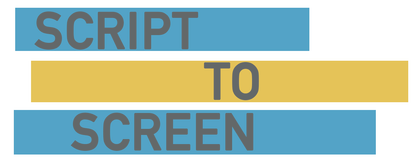|
Bellingham Film will not be running Script to Screen for 2019-2020. Please check our Facebook page to receive updates on the program.
Bellingham Film's Script to Screen program is back for another year!
The goal is simple: Let's break down barriers to entry for aspiring filmmakers. Let's help you develop professional skills in a safe, yet professional, environment. So how're we going to do it? This year Script to Screen is going to function as a shadow model. Participants will be placed on teams under the tutelage of experienced professionals and given specific tasks in order to help the entire crew complete production by mid-February. Our 2019 Mentors
Ways to Be Involved
All phases of Script to Screen will be mentored by local professionals, fully monitored by the Script to Screen Committee Production Teams
Script to Screen is composed of several mentored teams. A brief description of roles and responsibilities within each team can be found below
Participation Fee: $60 for at least six weeks on a mentored production team, including up to four days on set Production Assistants
Every production needs support when the camera is up and running. Bellingham Film is allowed participants to apply as production assistants at a discounted rate. The production assistant role is great for individuals who have limited schedules, limited budgets, or are unsure as to how they can contribute to the production. Participation Fee: $30 for up to four days on set as a production assistant along with access to team production meetings. 
As a community project, everyone living within Whatcom and Skagit counties are welcome to participate. Sorry, Snohomish. We’re limiting it to these areas in order to help promote filmmaking in Bellingham Film’s backyard. There will be plenty of roles and opportunities available to those who are interested, so we encourage you to reach out today. What we’re looking for in scripts:
Scripts are due at 8 p.m. PST on September 9th, 2018. Anything submitted after this deadline will not be considered for this year’s Script to Screen program. Please include:
There is a $10 submission fee for scripts, with all proceeds being used to fund the Script to Screen program. We’re only going to accept one script per person, so pick your favorite screenplay.
What's Different This Time Around?
We'll be working off of a shadow model. This means participants will work directly under professional mentors. You'll still get opportunities to participate in critical tasks and collaborate, but this model gradually introduces you to filmmaking skills. We're also increasing the cost to better offset the costs associated to the production. Don't worry, it's only $60 to be part of a production team. Alternatively, you can participate as a production assistant for only $30. Production assistants will only be assigned tasks onsite and will less responsibility than participants on the production team. Finally, this year we'll only be accepting completed screenplays. Last year we accepted pitches and helped writers to develop their ideas into screenplays. Writers can utilize our Short Screenplay Workshop or Script Studios to help develop their screenplays. The writer on Script to Screen is still expected to work with producers and directors in refining their material as the production moves forward. What If I’ve Never Worked on a Professional Film Set? Sign up! That’s why we created Script to Screen. We’re going to help you develop professional filmmaking skills so that you’re prepared for real-world opportunities. We’ll do our best to pair you with the team you’re most interested in. Here’s a link with a fairly complete listing and description of different jobs on set. It should give you some idea as to who does what and how you can be involved. Some roles, like the film loader, probably won’t exist on this production (since we’re shooting digitally), but feel free to reach out with any questions you may have about specific tasks. What Kind of a Commitment Am I Making? Crew members should expect at least a three month commitment with rigid deadlines and meetings throughout. Crew are expected on set for all days of production. If you cannot offer this level of commitment, we recommend applying as a production assistant. These positions do not carry the same level of responsibility as crew, but are absolutely necessary for production. Why the fee? Bellingham Film is doing its best to find outside support for this program, including gear donations from local production companies. However, we are asking members to make a small contribution to help finance this project. This money will be used for feeding everyone and covering all the costs of production, including post. No one is getting paid for this, all are volunteers—including Mentors and Committee. We’re only asking for a small donation so that it’s accessible to everyone. If I Pay $10 to Submit a Screenplay Do I Have to Donate to Participate in One of the Phases? Yes. The $10 pitch fee is independent of the participation fee. Again, these donations are one of our only avenues for funding the program. What Happens if Script to Screen Raises More Money Than the Cost of Production? The money will be used to enter the completed Script to Screen film into festivals, help fund future Script to Screen events, and be used to finance future Bellingham Film collaborative learning experiences. Where's the Last Film? It's coming. We promise. Still have questions? Click here to email us!
|
Script to Screen's Preliminary ScheduleScript to Screen takes place in four overlapping phases: Development, Pre-Production, Production, and Post
Phase One: Development August 1st: The Script to Screen submission window opens September 9th: Deadline to submit pitch packets. Any submission that comes in after 8 p.m. on September 9th will not be considered for this year’s Script to Screen September 16th: The Script to Screen Committee will announce which script they're selecting for production September 24th: The script will be read at the Bellingham Film Script Studio Phase Two: Pre-Production October Call for crew goes out. Crew teams will be assigned on a first come, first served basis. If you’re interested in being considered for a team, please email us Participants will work with their mentors in order to identify and complete tasks necessary for production November Last chance to sign up for a specific production team Participants will continue to complete tasks in preparation for the production December - January Participants will continue to complete tasks in preparation for the production December 16 - January 3rd: Holiday break Phase Three: Production January: Last chance to sign up as a production assistant Late-January/ Early-February: Tentative filming dates Phase Four: Post-Production February and Beyond For a fairly comprehensive breakdown of roles, click this link Script to Screen Sponsors | ||||||||||||

About Bellingham Film
Bellingham Film was founded in 2012 by Avielle Heath. The goal was simple: create a series of resources that can help connect filmmakers throughout Whatcom and Skagit counties. Since its inception, Bellingham Film has successfully launched workshops, festivals, and other organized events to support, enable, and showcase Washington filmmakers.
Bellingham Film was founded in 2012 by Avielle Heath. The goal was simple: create a series of resources that can help connect filmmakers throughout Whatcom and Skagit counties. Since its inception, Bellingham Film has successfully launched workshops, festivals, and other organized events to support, enable, and showcase Washington filmmakers.






